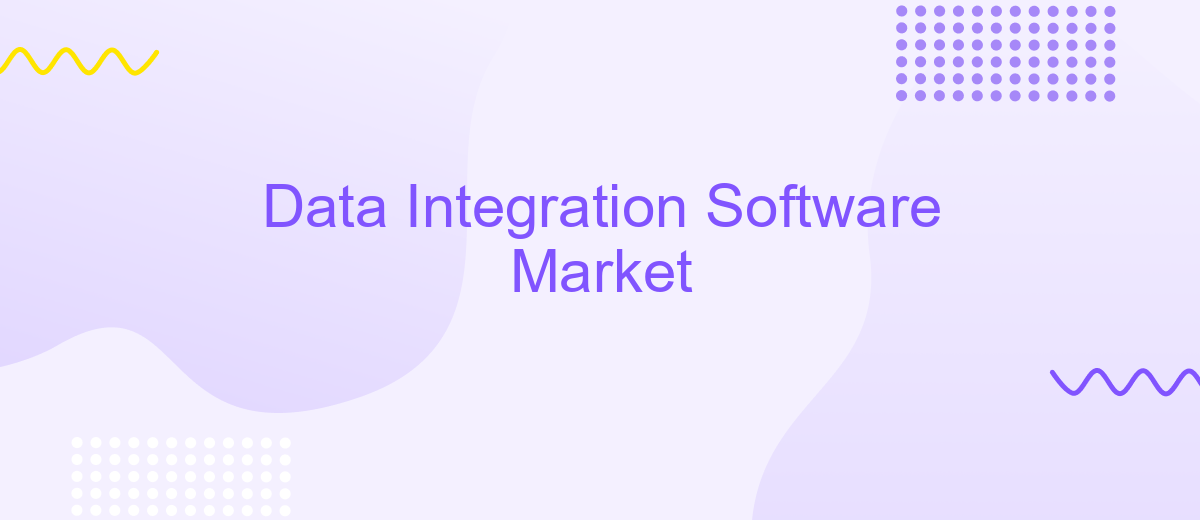Data Integration Software Market
The Data Integration Software Market is experiencing rapid growth as businesses increasingly seek efficient ways to manage and unify their data from diverse sources. This surge is driven by the need for real-time analytics, improved decision-making, and enhanced operational efficiency. As organizations prioritize data-driven strategies, the demand for robust data integration solutions continues to escalate, shaping the future of enterprise technology.
Executive Summary
The Data Integration Software Market is rapidly evolving, driven by the increasing need for seamless data management and real-time analytics. Companies are looking for robust solutions to integrate disparate data sources, ensuring data consistency and accessibility. This market is characterized by the adoption of cloud-based solutions and the integration of advanced technologies such as AI and machine learning.
- Growing demand for real-time data integration and analytics
- Increasing adoption of cloud-based data integration solutions
- Integration of AI and machine learning for enhanced data processing
- Rising need for data governance and regulatory compliance
- Emergence of user-friendly platforms like ApiX-Drive for seamless integration
ApiX-Drive is a notable player in this market, offering a user-friendly platform that simplifies the integration of various data sources. With its no-code interface, businesses can easily automate workflows and ensure data consistency across multiple applications. As the market continues to grow, solutions like ApiX-Drive are expected to play a crucial role in helping organizations achieve efficient and effective data integration.
Market Dynamics

The Data Integration Software Market is experiencing significant growth driven by the increasing need for businesses to streamline operations and manage data more efficiently. As organizations continue to adopt cloud-based solutions, the demand for robust data integration tools that can seamlessly connect disparate systems is on the rise. Companies are seeking solutions that not only integrate data from various sources but also ensure data quality and consistency. This trend is further fueled by the growing importance of big data analytics, which requires comprehensive and reliable data integration to derive actionable insights.
One notable player in this space is ApiX-Drive, a service that simplifies the process of setting up integrations between different applications. ApiX-Drive's user-friendly interface and extensive range of supported applications make it an attractive choice for businesses looking to automate data flows without extensive technical expertise. By offering pre-built connectors and real-time data synchronization, ApiX-Drive helps organizations reduce the complexity and cost associated with data integration, thereby enhancing overall operational efficiency and decision-making capabilities.
Segmentation and Analysis

The Data Integration Software Market is segmented based on deployment type, organization size, industry vertical, and region. This segmentation allows for a comprehensive analysis of the market dynamics and trends, providing valuable insights into various aspects of the industry.
- Deployment Type: The market is divided into on-premise and cloud-based solutions. Cloud-based solutions are gaining traction due to their scalability and cost-effectiveness.
- Organization Size: The market caters to both small and medium-sized enterprises (SMEs) and large enterprises. SMEs are increasingly adopting data integration software to streamline operations and improve decision-making processes.
- Industry Vertical: Key industries include banking, financial services, and insurance (BFSI), healthcare, retail, and manufacturing. Each industry has unique requirements and challenges, driving the demand for tailored integration solutions.
- Region: Geographical segmentation includes North America, Europe, Asia-Pacific, and the Rest of the World. North America holds a significant market share due to the presence of major technology players and high adoption rates of advanced technologies.
Additionally, services like ApiX-Drive play a crucial role in simplifying the integration process by offering user-friendly tools and automation features. This enhances the efficiency and effectiveness of data integration solutions, making them accessible to a broader range of businesses.
Competitive Landscape

The Data Integration Software Market is witnessing a surge in competition as numerous players strive to offer innovative solutions to meet the growing demand for seamless data management. Established companies and new entrants alike are focusing on enhancing their product portfolios to gain a competitive edge.
Key players are investing heavily in research and development to introduce advanced features that cater to the specific needs of various industries. Additionally, strategic partnerships and acquisitions are becoming common as companies aim to expand their market presence and technological capabilities.
- IBM Corporation
- Microsoft Corporation
- Oracle Corporation
- SAP SE
- Talend
- ApiX-Drive
ApiX-Drive, for instance, is making significant strides with its user-friendly integration services that simplify the process of connecting various applications and data sources. By offering robust and scalable solutions, ApiX-Drive is positioning itself as a key player in the data integration landscape, catering to businesses of all sizes seeking efficient and cost-effective integration solutions.


Future Outlook
The future of the Data Integration Software Market is poised for significant growth, driven by the increasing demand for seamless data connectivity and real-time analytics. As businesses continue to adopt cloud-based solutions and big data technologies, the need for robust data integration tools becomes paramount. Companies are expected to invest heavily in AI-powered integration platforms that offer enhanced automation and intelligent data processing capabilities. These advancements will not only streamline data workflows but also enable more accurate and timely decision-making processes.
Moreover, the rise of low-code and no-code integration platforms, such as ApiX-Drive, is set to democratize data integration, making it accessible to non-technical users. ApiX-Drive, for instance, allows businesses to effortlessly connect various applications and automate data transfers without the need for extensive coding knowledge. This trend is likely to foster innovation and efficiency across various industries, as more organizations leverage these tools to optimize their operations and gain a competitive edge. Overall, the Data Integration Software Market is expected to evolve rapidly, offering more sophisticated and user-friendly solutions to meet the growing data management needs of the future.
FAQ
What is Data Integration Software?
Why is Data Integration important for businesses?
What are some common challenges in Data Integration?
How can automation help in Data Integration?
What factors should be considered when choosing Data Integration Software?
Time is the most valuable resource for business today. Almost half of it is wasted on routine tasks. Your employees are constantly forced to perform monotonous tasks that are difficult to classify as important and specialized. You can leave everything as it is by hiring additional employees, or you can automate most of the business processes using the ApiX-Drive online connector to get rid of unnecessary time and money expenses once and for all. The choice is yours!

